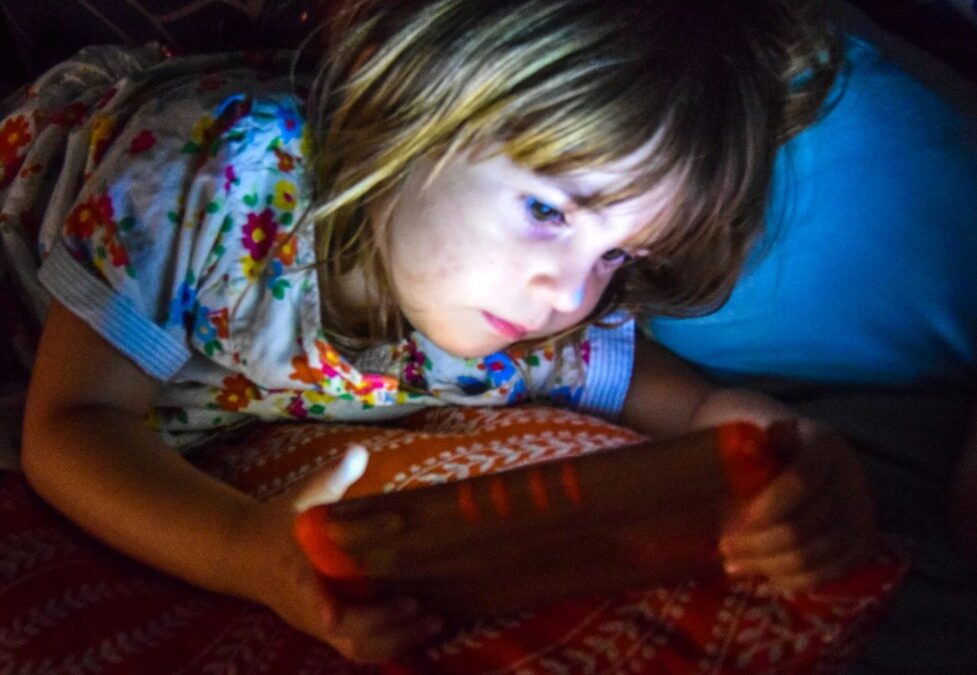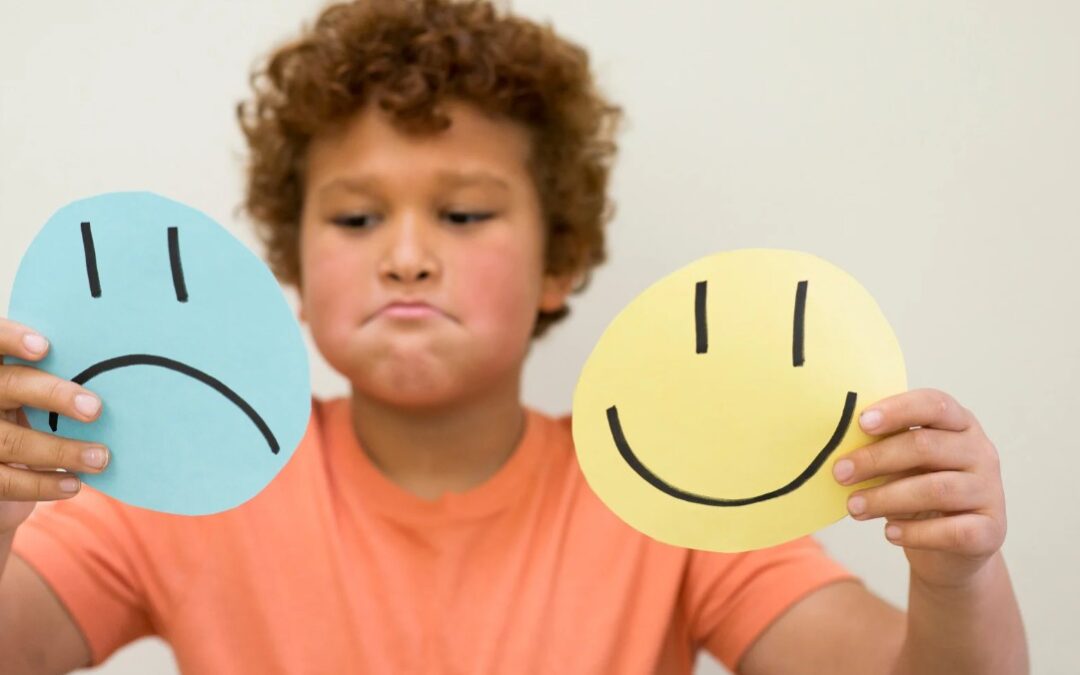
Adolescent anxiety CBT provides essential tools for teens facing anxiety, empowering them to understand and manage their symptoms. CBT, or Cognitive Behavioral Therapy, is especially effective for adolescent anxiety due to its structured, goal-oriented approach. Studies show that adolescent anxiety CBT techniques help young individuals reduce irrational thoughts and replace them with constructive thinking, enabling them to gain control over their emotions. This evidence-based approach has been a key component in treating adolescent anxiety, and it is among the most recommended therapies for youth mental health issues [Psychology Today].
Why Adolescent Anxiety Is Increasing
Adolescence is already a vulnerable period, and the rise in adolescent anxiety is a growing concern. Studies report that 8% of U.S. children and teenagers now experience a diagnosable anxiety disorder, which is often exacerbated by social media, academic pressure, and broader societal stresses like the COVID-19 pandemic [Psychology Today]. This prevalence underscores the need for adolescent anxiety CBT, which gives teens the skills to manage anxiety both during therapy and afterward . Through CBT, teens develop a deeper awareness of their thought patterns, allowing them to approach challenges with resilience and clarity.
How Adolescent Anxiety CBT Works
CBT for adolescent anxiety uses a structured framework of strategies that target both cognitive and behavioral aspects of anxiety. This approach helps adolescents become more aware of how thoughts impact emotions and behaviors, offering them tools to challenge irrational beliefs and replace them with realistic, supportive ones. Adolescent anxiety CBT involves key techniques such as:
- Thought Records: This technique encourages teens to document their anxious thoughts and behaviors, helping them identify negative thinking patterns. Thought records are central to adolescent anxiety CBT, as they allow young individuals to reflect on how certain thoughts influence their emotional well-being. By learning to reframe these thoughts, teens can reduce the impact of their anxiety.
- Exposure Therapy: Exposure therapy is a major component of adolescent anxiety CBT, gradually helping teens confront feared situations in a safe, controlled setting. Studies show that exposure therapy is highly effective for social anxiety, as it reduces avoidance behaviors over time. Teens learn that anxiety symptoms are manageable, allowing them to face challenging situations with increased confidence.
- Behavioral Experiments: Behavioral experiments in adolescent anxiety CBT involve testing anxious beliefs in real-world settings. For example, a teen with social anxiety may believe that “everyone will laugh at me if I make a mistake.” Through CBT, they engage in a small social experiment to observe others’ reactions, helping them realize that their fears are often exaggerated. This technique builds self-confidence and reduces social anxiety.
- Mindfulness and Relaxation Practices: Mindfulness exercises, such as deep breathing and grounding techniques, are commonly included in adolescent anxiety CBT. These techniques help teens remain present, reducing the effects of rumination and excessive worry. Mindfulness has been shown to alleviate the physical symptoms of anxiety, making it a valuable addition to CBT for adolescent anxiety [Psychology Today].
The Role of Parents in Adolescent Anxiety CBT
Parental involvement is often encouraged in adolescent anxiety CBT, as it has been shown to significantly improve outcomes. When parents participate, they can reinforce the CBT techniques at home, creating a stable, supportive environment. A study found that adolescents whose parents were involved in their CBT had lower anxiety levels, suggesting that family participation is beneficial. Parents also learn how to model positive coping strategies and can help normalize the use of CBT techniques as part of everyday life.
Anxiety CBT Compared to Other Treatments
CBT is frequently compared with other treatments like medication for managing adolescent anxiety. Unlike medications, which may provide short-term relief, adolescent anxiety CBT focuses on building long-lasting skills that help teens manage anxiety independently. Research by the American Psychological Association found that CBT offers equivalent benefits to medication in the short term and has even greater efficacy in the long term due to its skills-based approach [APA]. Additionally, adolescent anxiety CBT reduces reliance on medication, which can have side effects and typically requires long-term adherence [NIMH].
Long-Term Benefits of Adolescent Anxiety CBT
One of the unique advantages of adolescent anxiety CBT is its potential for long-term benefits. Adolescents who complete CBT often develop improved emotional regulation, greater resilience, and more effective social skills. These benefits extend beyond therapy, as CBT equips young individuals with tools to handle future stressors. Studies indicate that teens who undergo CBT are less likely to develop additional mental health challenges later in life, underscoring the lasting impact of adolescent anxiety CBT . The focus on self-efficacy in CBT helps adolescents view life challenges as manageable, fostering a proactive mindset that benefits their well-being into adulthood [Psychology Today].
Anxiety CBT at Orchard Mental Health
At Orchard Mental Health, our licensed clinicians specialize in adolescent anxiety CBT, providing a structured, individualized approach to each patient’s needs. We focus on creating a collaborative process that includes both the adolescent and their family, reinforcing CBT principles for consistent support. Our adolescent anxiety CBT program is tailored to provide practical tools for managing anxiety, ensuring that teens feel supported both during therapy and beyond [Orchard Mental Health].
Schedule a Consultation with Orchard Mental Health
If you are interested in learning more about adolescent anxiety CBT, we invite you to schedule a consultation today. Together, we can help your child develop the skills needed to face anxiety confidently and build a resilient future.
Explore more on our Adolescent Psychotherapy page or Request an Appointment to begin the journey with Orchard Mental Health.
Follow us for more wellness content!
More Blog Posts

Addressing Screen Time’s Impact on Children’s Sleep
In an era where screens are abundant, parents are increasingly concerned about how devices affect their children’s sleep. Poor sleep can impact mood, focus, and overall health, making it a critical issue for child development. Supported by scientific research, this blog explores the psychological effects of screen time on sleep and offers parents compassionate, practical strategies to promote healthier sleep habits.

Building Resilience in Children Facing Academic Pressure
Academic pressure is a growing concern for parents, as children face high expectations from schools, peers, and even themselves. Building resilience—the ability to adapt and thrive despite setbacks—is crucial for children to navigate these demands without sacrificing mental health. Grounded in psychological research, this blog offers parents practical, empathic ways to foster resilience in their children.

Supporting Children’s Emotional Regulation in a Fast-Paced World
Emotional regulation—the ability to recognize, process, and respond to feelings appropriately—is critical for mental health and social success. For parents, understanding how to support this skill is vital.

The Healing Power of Nature for Neurodivergent Children
For neurodivergent children—those with conditions like autism, ADHD, or sensory processing disorders—the world can feel overwhelming, with sensory overload, social challenges, and emotional regulation often posing daily hurdles. Emerging research highlights nature as a powerful ally in supporting their well-being, offering a calming, inclusive environment that fosters growth and resilience.

The Impact of Social Media on Young Men
One major concern is the effect of social media on mental health. Studies have linked prolonged social media use to increased risks of anxiety, depression, and low self-esteem among young people. For young men, who may feel societal pressure to appear strong and stoic, these platforms can exacerbate feelings of inadequacy.
In crisis or need immediate help?
Call 988 or go to your nearest ER.
Services
Adolescent Psychotherapy
Adult Psychotherapy
Assessments & Evaluation
Child Psychotherapy
Cognitive Behavioral Therapy
Couples Therapy
Family Therapy & Parent Coaching
Genetic Testing
Group Therapy
Medication Management
Play Therapy
Single-Session Therapy
Teletherapy
Orchard Mental Health Group
Accepted Insurance*
Aetna
Carefirst / Blue Cross Blue Shield
Cigna
Humana / Tricare
Johns Hopkins Health Plans
Medicaid
Medicare
Optum / UnitedHealthcare
*Varies by service
Partner Resources
Contact Us
M-F, 9am-5pm Eastern Time
Phone: 240-750-6467
Fax: 240-912-7835
contact@orchardmentalhealth.com
9707 Key West Avenue, Suite #100 Rockville, MD 20850


